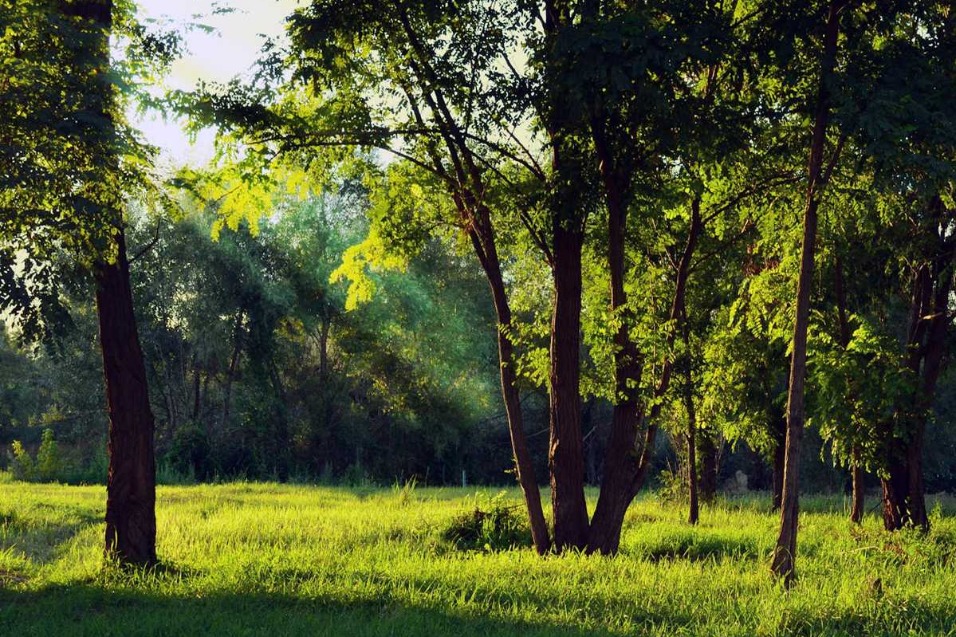“星巴克咖啡致癌”刷了屏,嚇得我趕緊喝了一杯壓壓驚……
中國(guó)日?qǐng)?bào)雙語(yǔ)新聞 2018-04-06 10:10

最近有關(guān)“星巴克咖啡致癌”的文章刷了屏……

雙語(yǔ)君(微信ID:Chinadaily_Mobile)看著這個(gè)令人“震驚”的標(biāo)題,默默地搜索了一下外媒報(bào)道。

不得不說(shuō),新聞實(shí)際內(nèi)容和上述刷屏標(biāo)題之間差了不止一個(gè)太平洋的距離啊……
那么,“星巴克咖啡致癌”究竟是怎么回事呢?咖啡到底還能不能好好喝了?
雙語(yǔ)君(微信ID:Chinadaily_Mobile)好好給你們說(shuō)說(shuō)。
3月29日開(kāi)始,路透社、美聯(lián)社、華盛頓郵報(bào)等各大外媒齊刷刷地報(bào)道了加州法官裁定咖啡要標(biāo)明致癌警告的消息。

從上面的標(biāo)題可以劃出3個(gè)重點(diǎn):
? 加州地區(qū)
? 不光是星巴克,是所有咖啡商
? 貼致癌警告,不是說(shuō)喝咖啡致癌
所以,開(kāi)頭提到的那篇文章,是妥妥的斷章取義“標(biāo)題黨”了!
具體情況,一起來(lái)看看路透社報(bào)道:
A little-known not-for-profit group sued some 90 coffee retailers, including Starbucks, on grounds they were violating a California law requiring companies to warn consumers of chemicals in their products that could cause cancer.
一個(gè)沒(méi)什么知名度的非營(yíng)利組織起訴了包括星巴克在內(nèi)的90多家咖啡商,理由是他們違反了加州要求企業(yè)警告顧客其商品中包含致癌物質(zhì)的法律。
據(jù)法官裁定,加州地區(qū)的咖啡上都要貼致癌警告。
Los Angeles Superior Court Judge Elihu Berle said in a decision dated Wednesday that Starbucks and other companies had failed to show there was no significant risk from a carcinogen produced in the coffee roasting process, court documents showed.
根據(jù)法庭文件,洛杉磯高等法院法官Elihu Berle周三在一項(xiàng)判決結(jié)果中表示,星巴克及其他咖啡公司沒(méi)能證明在咖啡豆烘焙過(guò)程中產(chǎn)生的致癌物質(zhì)不會(huì)有大風(fēng)險(xiǎn)。
carcinogen:[kɑr's?n?d??n] 致癌物質(zhì)
而法官所說(shuō)的致癌物質(zhì)就是丙烯酰胺(acrylamide):
Studies have previously found that in large quantities, acrylamide can increase the risk of cancer in some animals. It's among the chemicals California lists as "known to cause cancer".
此前有研究表明,大量丙烯酰胺會(huì)導(dǎo)致某些動(dòng)物患癌的風(fēng)險(xiǎn)提高。該物質(zhì)也在加州化學(xué)物質(zhì)名單上,被列為“已知致癌物質(zhì)”。
acrylamide:[?'kr?l?ma?d] 丙烯酰胺
其實(shí)早在8年前,加州非盈利組織——有毒物質(zhì)教育研究理事會(huì)(Council for Education and Research on Toxics),就對(duì)星巴克、綠山咖啡、7-11等90家咖啡烘焙商及零售商提起了訴訟。
The Council for Education and Research on Toxics filed a suit in 2010 that claims Starbucks and other coffee sellers violate state law by failing “to provide clear and reasonable warning” of a known carcinogen.
2010年,有毒物質(zhì)教育研究理事會(huì)狀告星巴克和其他咖啡商家,稱他們違反了加州法律,對(duì)已知致癌物不能“提供清楚合理的警告”。
這個(gè)組織也不是憑空起訴,他們的依據(jù)是加州65號(hào)提案。
65號(hào)提案
Proposition 65

加州65號(hào)提案(Proposition 65),即《1986年飲用水安全與毒性物質(zhì)強(qiáng)制執(zhí)行法》(Safe Drinking Water and Toxic Enforcement Act of 1986)規(guī)定:
Proposition 65 requires businesses to notify Californians about significant amounts of chemicals in the products they purchase, in their homes or workplaces, or that are released into the environment. By providing this information, Proposition 65 enables Californians to make informed decisions about protecting themselves from exposure to these chemicals.
65號(hào)提案要求商家告知加州居民他們購(gòu)買的東西,家中、工作場(chǎng)所,或環(huán)境中所含的大量化學(xué)物質(zhì)。通過(guò)提供此類信息,65號(hào)提案讓加州居民在是否要讓自己接觸化學(xué)物質(zhì)方面做知情決定。
對(duì)于法官的判決,星巴克等咖啡企業(yè)表示不服,準(zhǔn)備在本月10號(hào)提起上訴。
不過(guò)也有一些企業(yè)在判決前就決定妥協(xié)了。
Several defendants in the case settled before Wednesday’s decision, agreeing to post signage about the cancer-linked chemical and pay millions in fines, according to published reports.
該案中數(shù)名被告在周三判決前,就同意張貼致癌物質(zhì)提示標(biāo)識(shí),支付百萬(wàn)罰金。
美國(guó)咖啡協(xié)會(huì)(National Coffee Association)對(duì)判決發(fā)表聲明表示,喝咖啡早已被多方證明是有益健康的,貼“致癌警告”標(biāo)簽會(huì)誤導(dǎo)消費(fèi)者。
The industry is currently considering all of its options, including potential appeals and further legal actions. Cancer warning labels on coffee would be misleading.
整個(gè)咖啡行業(yè)目前正在考慮各項(xiàng)應(yīng)對(duì),包括繼續(xù)提出上訴及采取進(jìn)一步的法律行動(dòng)。在咖啡產(chǎn)品上貼上致癌警告標(biāo)簽將會(huì)是一個(gè)誤導(dǎo)消費(fèi)者的行為。
The US government's own Dietary Guidelines state that coffee can be part of a healthy lifestyle. The World Health Organization (WHO) has said that coffee does not cause cancer. Study after study has provided evidence of the health benefits of drinking coffee, including longevity — coffee drinkers live longer.
美國(guó)政府發(fā)布的營(yíng)養(yǎng)指南中指出,咖啡是健康生活方式的一部分。世界衛(wèi)生組織也明確指出咖啡不會(huì)致癌。許多學(xué)術(shù)研究都已經(jīng)證明了飲用咖啡對(duì)健康的益處,并且咖啡飲用者通常更長(zhǎng)壽。
好了,了解了事情的來(lái)龍去脈,下面是科普時(shí)間。
什么是丙烯酰胺?
Acrylamide [?'kr?l?ma?d]
上文提到的“致癌物”丙烯酰胺到底是一種什么物質(zhì)呢?
The chemical acrylamide is a white, odourless, crystal compound. It has the chemical formula C3H5NO.
丙烯酰胺是一種無(wú)味的白色晶體化學(xué)物質(zhì)。化學(xué)式是C3H5NO。

這種物質(zhì)通常用來(lái)制造塑料、處理污水等。
人體可通過(guò)消化道、呼吸道、皮膚粘膜等多種途徑接觸丙烯酰胺。
在食品方面,高溫烹飪會(huì)產(chǎn)生丙烯酰胺:
Acrylamide is created when starchy foods are roasted, grilled or fried for long periods at high temperatures.
淀粉類食物在高溫下長(zhǎng)時(shí)間被烘烤、燒烤、煎炸時(shí),就會(huì)產(chǎn)生丙烯酰胺。
Scientists believe the acrylamide in food is a product of the Maillard reaction. This reaction occurs when sugars and amino acids are heated above 120° C.
科學(xué)家認(rèn)為丙烯酰胺是食物發(fā)生美拉德反應(yīng)時(shí)的產(chǎn)物。美拉德反應(yīng)是指糖和氨基酸加熱到120攝氏度以上時(shí)發(fā)生的反應(yīng)。
所以,大家愛(ài)吃的煎炸類食品如薯?xiàng)l、油條、餅干等,都是含有丙烯酰胺的。

你在吸煙或被迫吸二手煙時(shí)也會(huì)接觸到丙烯酰胺:
Day-to-day we are exposed to acrylamide through smoking and secondhand smoke, as well as personal care products and household items.
日常生活中,我們通過(guò)吸煙和吸二手煙接觸到丙烯酰胺,此外,還會(huì)通過(guò)個(gè)人護(hù)理品和家用產(chǎn)品接觸到這種物質(zhì)。
be exposed to:暴露于;受到……影響
丙烯酰胺對(duì)人體有害嗎?
毫無(wú)疑問(wèn),丙烯酰胺對(duì)人體是有害的,但還是那句老話,“拋開(kāi)劑量談毒性都是耍流氓”……
But the thing is, the dose makes the poison.
關(guān)鍵是,劑量決定毒性。
dose [d??s]:劑量
The devil is in the dose.
劑量才是惡魔。
如果劑量大了,丙烯酰胺會(huì)導(dǎo)致神經(jīng)受損:
Workplace exposure to very high doses of acrylamide can cause nerve damage and disorders of the nervous system.
工作環(huán)境接觸大量丙烯酰胺會(huì)損害神經(jīng),導(dǎo)致神經(jīng)系統(tǒng)紊亂。
exposure:受危害;暴露
針對(duì)動(dòng)物的實(shí)驗(yàn)也表明攝入大量丙烯酰胺會(huì)致癌。
However, the doses given to animals have been 1000–100,000 times larger than the amounts humans are exposed to through diet.
不過(guò),實(shí)驗(yàn)中動(dòng)物攝入的劑量是人類飲食中接觸的劑量的1000到10萬(wàn)倍。
但目前針對(duì)人類的研究尚未確認(rèn)丙烯酰胺的攝入量、相關(guān)生化標(biāo)志物水平與癌癥風(fēng)險(xiǎn)之間的關(guān)聯(lián)。
咖啡中含多少丙烯酰胺?
各種咖啡中的丙烯酰胺含量因咖啡而異。
2013年的一項(xiàng)研究分析了42種咖啡樣本,結(jié)果發(fā)現(xiàn):
They found instant coffee to have 100% more acrylamide than fresh roasted coffee, while coffee substitutes had 300% more.
速溶咖啡中的丙烯酰胺含量是新鮮烘焙咖啡的2倍,而咖啡替代品的丙烯酰胺含量則是其3倍。

所以喝咖啡致癌嗎?
丙烯酰胺是否會(huì)使人類致癌,還是未知數(shù):
While a link between acrylamide intake and cancer in humans hasn't been proven, it cannot be ruled out.
雖然還沒(méi)有確切證據(jù)證明丙烯酰胺和人類患癌之間有聯(lián)系,但這一可能也不能完全排除。
但確實(shí)沒(méi)有研究證明咖啡能致癌:
Coffee drinking has not been shown to increase your risk of cancer. In fact, it's linked with a reduced risk of developing some types of cancers.
沒(méi)有跡象顯示喝咖啡會(huì)增加患癌風(fēng)險(xiǎn)。事實(shí)上,有研究認(rèn)為咖啡還會(huì)降低罹患某些癌癥的風(fēng)險(xiǎn)。
而且,咖啡也早已被“洗刷污名”了:
In 2016, the cancer agency of the World Health Organization moved coffee off its "possible carcinogen" list.
2016年,世界衛(wèi)生組織下屬國(guó)際癌癥研究機(jī)構(gòu)將咖啡從“可能致癌物”名單中移除。
carcinogen [kɑr's?n?d??n]:致癌物質(zhì)
怎樣減少丙烯酰胺攝入?
? Quit smoking and try to minimize your exposure to secondhand smoke.
戒煙,盡量減少暴露在二手煙環(huán)境中;
? Keep frying to a minimum, as it produces the most acrylamide of all cooking methods.
盡量少吃油炸食品,所有烹飪方法中,煎炸產(chǎn)生最多的丙烯酰胺;

? Try not to burn or char foods on the grill.
盡量別把食物烤焦了。

char:把……燒成碳
? Toast bread to a light brown color and avoid burnt toast.
烤面包使烤至淺棕色即可,別吃烤焦的面包;

? Boil or use the microwave when possible.
可能的話多用煮和微波爐處理食物;
? Choose fresh roasted coffee and avoid instant coffee and coffee alternatives.
選擇咖啡豆,避免喝速溶咖啡和咖啡替代品。
好了,看完可以安心了,繼續(xù)喝你愛(ài)喝的咖啡吧……
(來(lái)源:中國(guó)日?qǐng)?bào)雙語(yǔ)微信公眾號(hào),編輯:唐曉敏 左卓)

















 英語(yǔ)點(diǎn)津微信
英語(yǔ)點(diǎn)津微信 雙語(yǔ)小程序
雙語(yǔ)小程序